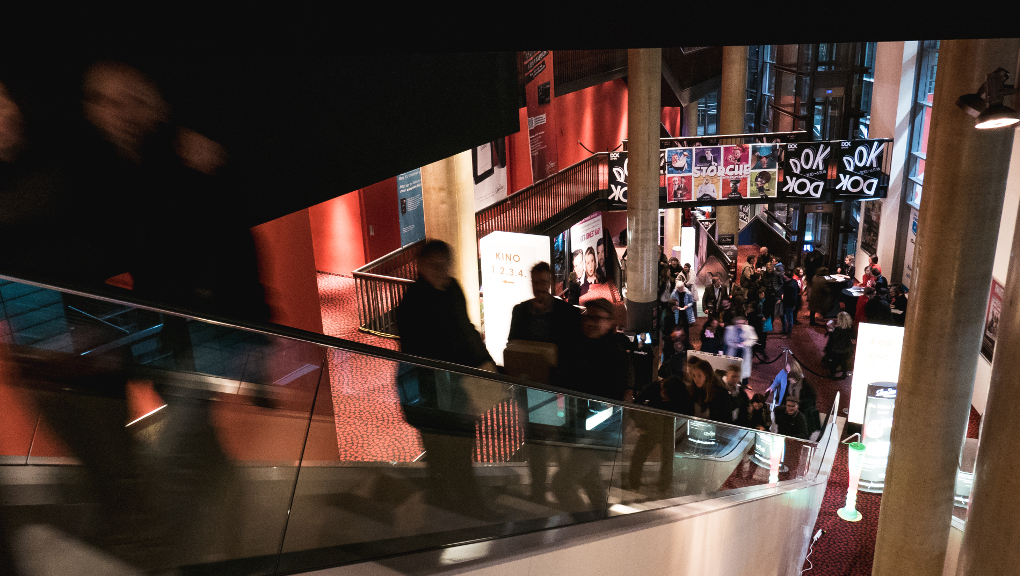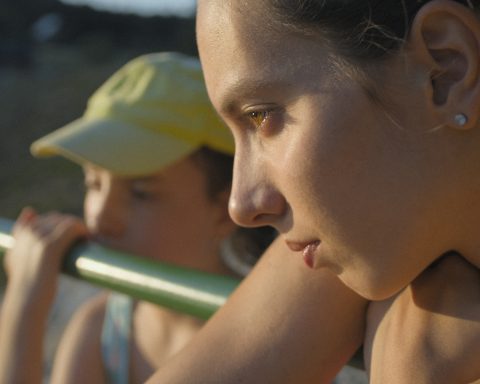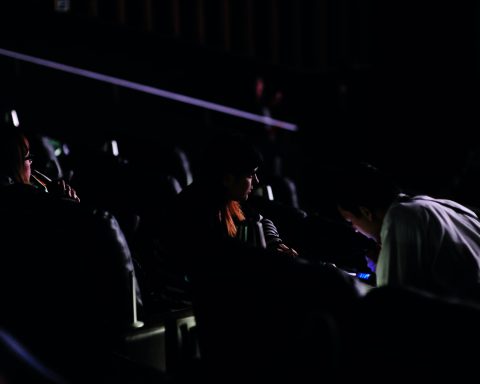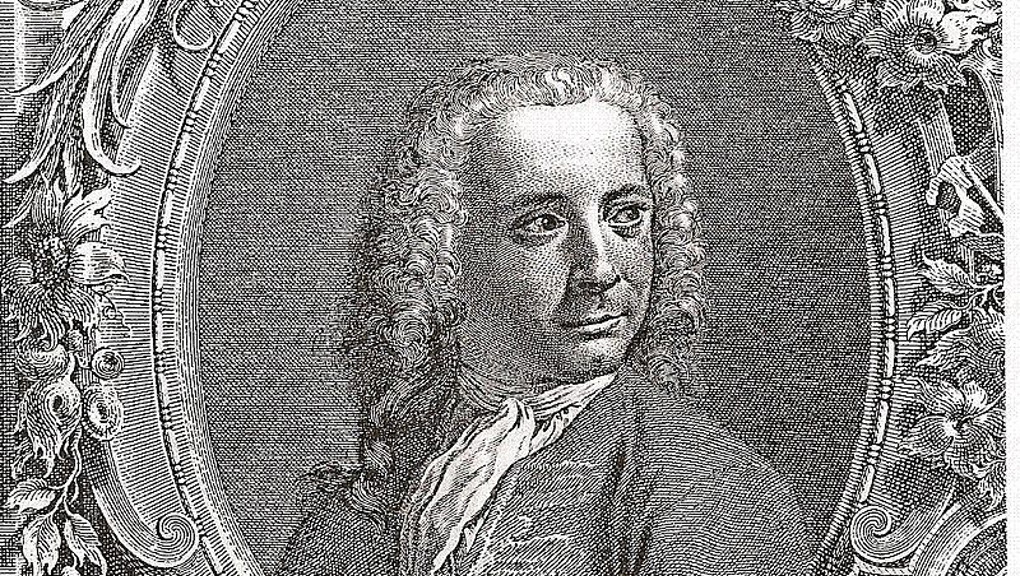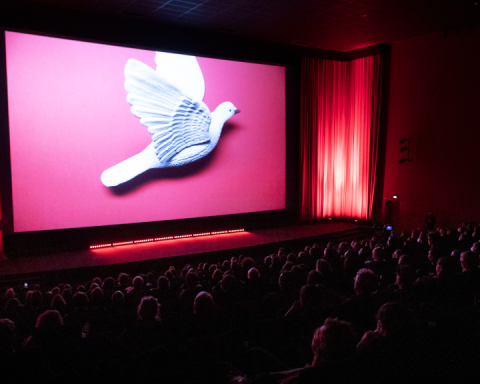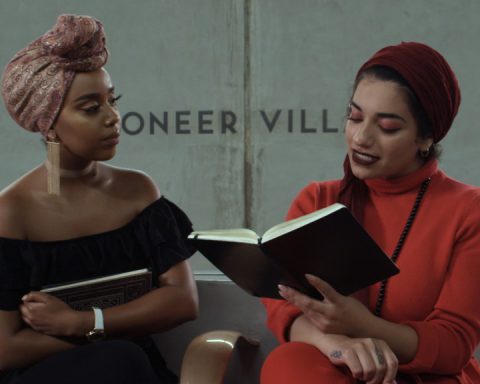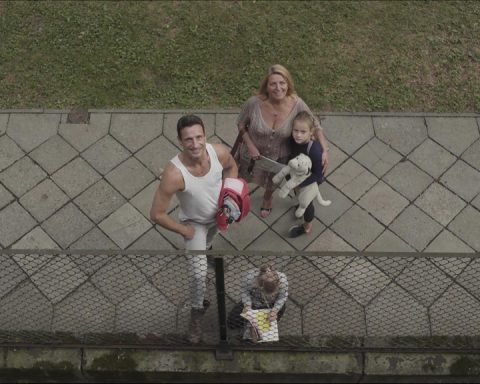Leipzig is the kind of place where the red carpet would probably fare better as an art statement on social exclusion and the disturbing cult of celebrity than as an actual passage. The city’s longest running film fest (featuring documentaries and animation) and the folks who run it seem to be as down-to-earth as its cradle and home in East Germany. This year, they want their closing film party and multiple events open to the public to reflect a sense of community more than ever.
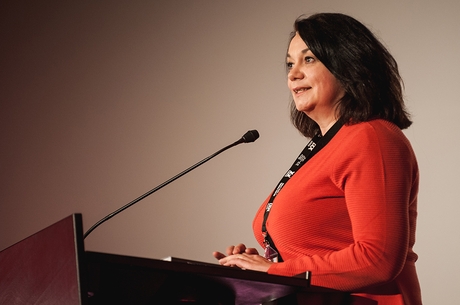
It’s DOK Leipzig’s 60th edition, and the organizers would like to invite “the whole city to dance with the winners,” says Leena Pasanen, the festival’s director. This means that for the first time, DOK’s closing party, following the awards ceremony, will be free and open to all – with or without a festival pass.
All you have to do is show up at Westbad Leipzig starting at 10 pm on Saturday, 4 November, to party with the film crowd.
After giving much thought to how to mark the Big 6-0, besides the closing party, “we decided to celebrate with films,” Pasanen tells me. So the organizers matched iconic films from the festival’s recent and distant past with specific themes and three venues in Leipzig: UT Connewitz, Institut für Zukunft and the Grassimuseum. The idea is to compare cinematic portrayals of pressing issues at different times: “Now and Then – Then and Now.”
Kim Busch, DOK program coordinator, explained to me the selection of the venues. The fest’s organizers found UT Connewitz, as “the oldest cinema in Leipzig,” to be the ideal place to show films under the theme “Politics and History;” the Institut für Zukunft, as a nightclub, represents youth culture (under the cinematic theme “Young Eyes”); and the Grassimuseum will fittingly host the “Active Art” films. Admission is free and first come, first-served, though DOK is asking for donations to go towards the project of renovating a historic movie theater on Einsenbahnstraße, which has been saved from demolition.
The special anniversary program will take place this weekend (27-29/10) in the evening, preceding the film fest week. Each of the three venues has its own program of films and talks, this Friday, Saturday and Sunday, respectively.
Busch says the youth demographic has become increasingly important for DOK Leipzig, including a growing young audience as well as films made for, by and about young people (as in the special program “Escaping Realities”). In its overarching “Post-Angst” theme this year – and the spotlight on high quality, innovative filmmaking from the country of Georgia – the festival focuses not only on commemorating the past, but also on looking into how to move forward in the future by creatively fighting the political and social crises of the present. The scenario unfolding now is eerily similar to the totalitarianism (right and left) of the past, Busch and Pasanen noted.
With such ideas in mind, DOK Leipzig decided to dedicate its 2017 “Homage” special program to independent American filmmaker Jay Rosenblatt. He is perhaps best known for Human Remains, a 1998 short film that, according to the program page, “approaches the greatest dictators of the 20th century by means of banal everyday scenes. (…) Edited archival footage shows Hitler, Stalin and Mao in a private or even intimate light. A voiceover reading out their diary entries – partly based on documents, partly fictitious – tells us about their eating habits or their favourite niece. The filmmaker does not mark the atrocities out as diabolical, as somehow other, but instead moves them towards us in an unsettling way.”
You can watch Human Remains for free as part of the Grassimuseum program this Sunday, at 6 pm. Another film by Rosenblatt, a “World Premiere,” will play at the Leipzig Hauptbanhof for anyone who wants to see it: Filmmakers Unite, a collective production and mosaic tackling aspects of life in the U.S. since Donald Trump took over. It’s on Wednesday, 1 November, at 7:30 pm in the train station’s Osthalle.
In fact, Pasanen says,
We’ve turned the Hauptbanhof Osthalle into the biggest cinema in the city.
Since 2015, DOK Leipzig and Promenaden Hauptbanhof have partnered to show films for free at Leipzig’s main train station during the film festival. The Osthalle is set up with 200 seats, but an estimated 800 people tend to sit and squeeze in all over the hall to watch the films. Pasanen calls it “a wonderful atmosphere,” noting the inclusiveness of it, with business people and the homeless enjoying cinema together and many discovering the fest that way.
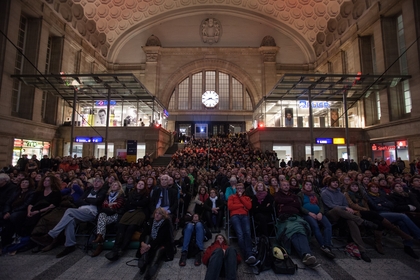
Besides the showtimes at Hauptbanhof, always at 7:30 pm during DOK week, the Polnisches Institut has a packed calendar welcoming the public to watch Polish films and join DOK Talks on various topics, also free of charge.
Rounding out the DOK’s free offers, Busch and Pasanen recommend checking out the interactive DOK Neuland, open from 31/10-04/11, and this year expanded into the Messehof in the city center. The program page says its “works formulate dystopias, develop visions of a future of optimised bodies and minds. They ask how we want to use human resources in the future and whether the future we are heading for is really the one we want. And they answer: a different future is not a utopia, but a massive effort.”
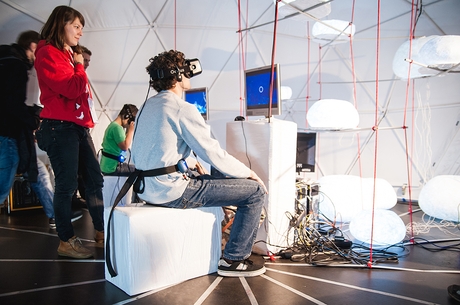
DOK Leipzig’s committees watched a total of about 3,000 films for this year’s edition, between submissions and visiting other festivals. In total, 340 made it into the festival – with 154 of those included in the fest’s competitions and international program, being not older than one year, according to Busch. The full festival program is available on its official website. Advance booking is advised.
DOK Leipzig 2017: 30/10-5/11
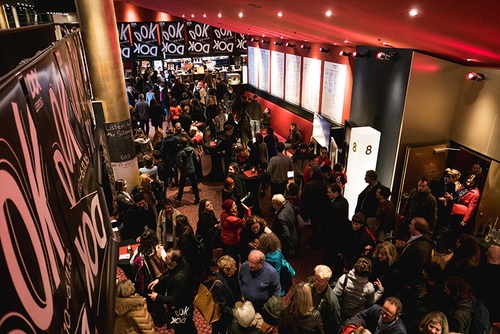
Tickets: €8 full, €6 reduced
Hacks: Showtimes before 2:30 pm are reduced price (€6); watch three award-winning movies for about the price of two on the Sunday closing out the fest (€14)
Cover shot: Opening DOK Leipzig 2016. (Photo: Susann Jehnichen)

